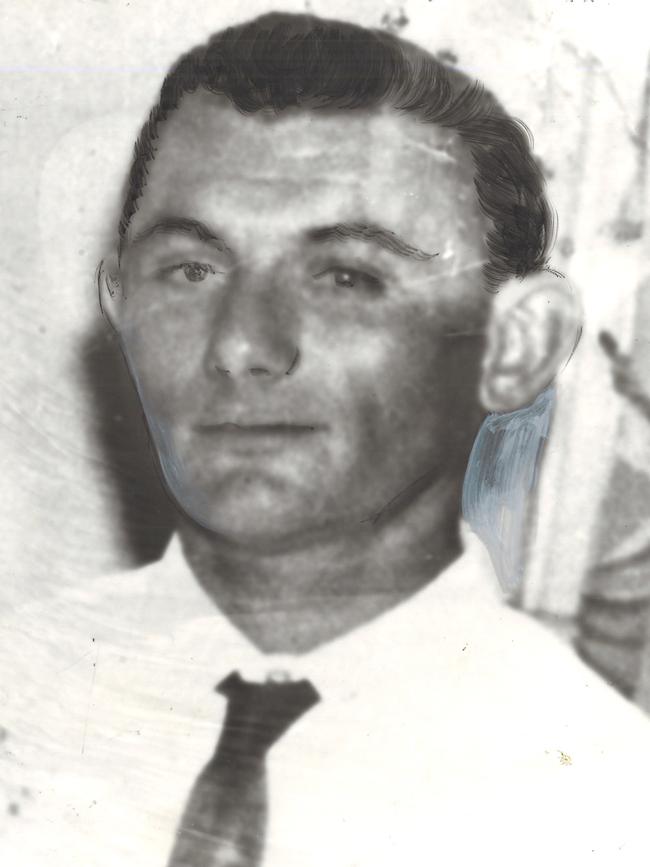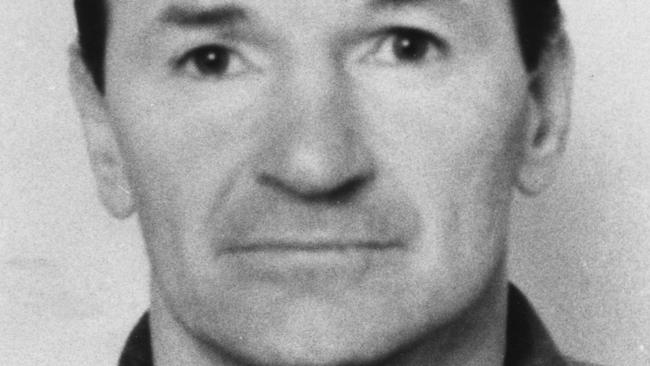FOR the first time in over half a century, the ghost of a country town roustabout who disappeared without a trace in 1964 has stepped into the spotlight.
Raymond Vincent “Tommy” Allen, 22, was a likeable and impressionable young man living in Warwick, 130km southwest of Brisbane, in the 1960s when he fell in with the wrong crowd.
Claim Angel of Death said missing man ‘wouldn’t be talking to anybody any more’
State offers $250k reward for information on murder of Vincent Raymond Allen
Did pair end up in O’Dempsey’s graveyard?
He worked on the construction of the Leslie Dam outside Warwick, and in his spare time dressed up as a “bodgie” – the youth rebel movement out of the US, a la Rebel Without a Cause – slicking his hair back, donning loud leopard-skin-patterned pants, and hanging out in the pubs and pool halls along Palmerin St through the centre of town.
He was just a kid.
Then he made the mistake of engaging in the robbery and arson of the Pigott and Co jewellery store in Warwick.
He was brought in by police on suspicion of another matter, and, according to detectives who investigated the Allen case, “spilt the beans” on the store robbery.


He told police his partner in crime was another local hood, Vincent O’Dempsey, now in prison for life for the 1974 murders of Brisbane mother Barbara McCulkin and her two daughters in 1974.
In 1964, police detained Allen, who agreed to testify against O’Dempsey.
The robbery charges against him never materialised in exchange for his information on O’Dempsey, and his reward was a job with the railways in the nearby township of Karara, which police organised. O’Dempsey was charged with the robbery.
At his first court appearance, Allen was nowhere to be found.
As a result of his absence, the case against O’Dempsey evaporated.
A 1980 inquest looked into the Allen case and that of Barbara McCulkin and her daughters.
It also examined the case of a prostitute by the name of Margaret Grace Ward, who vanished in the early 1970s before she was due to give evidence against O’Dempsey’s then de facto, Dianne Pritchard.

No trace has ever been found of Ward.
The reignited investigation into Allen’s murder by detectives from the State Crime Command’s Cold Case Unit, within the Queensland Police’s Homicide Group, is extraordinary on many levels.
The conviction of O’Dempsey in 2017 over the McCulkin murders after 43 years was a watershed moment in cold-case investigation in Queensland, if not Australia.
It changed the rules on the probable success of a conviction in cases that once may have been judged as lost to the passage of time.
Now, with police attention shifting to an even colder murder case than that of the McCulkins, and the offer of a $250,000 reward for information that leads to a conviction, the message is loud and clear.
No unsolved murder case is ever closed, no matter how old.



Add your comment to this story
To join the conversation, please log in. Don't have an account? Register
Join the conversation, you are commenting as Logout
Elite squad to track elusive murderer and cold case fugitive
It’s been almost a year since a confirmed sighting of one of Queensland’s most wanted men, cold case fugitive and convicted murderer Keith Lees, and police are stepping up the hunt.
‘Last ray of hope’ snuffed out with no charges over crayfish farm shooting
The family of a young scientist shot dead while working at a crayfish farm say they lost their “last ray of hope” after an inquest failed to result in charges against two people named by a coroner.